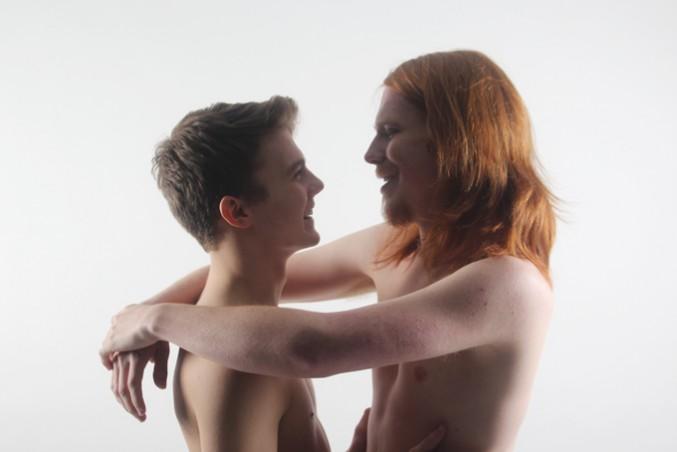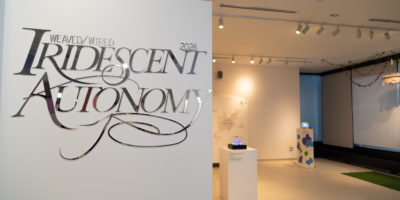By Badri Murali
When Jordan Mathieu moved to Toronto at 17, she decided that would be the first time to come out as a lesbian to her friends.
“I remember that I always kind of knew, but I know that if I had come out when I was in high school, I would be immediately known to everyone as that lesbian,” says Mathieu, now a fifth-year aerospace engineering student.
Mathieu was raised in Merritt, B.C. and is also a reserves member with the Armed Forces. She says she knew that it would be better to come out while in Toronto. Ryerson is in the heart of Canada’s largest city and just south of one of North America’s largest LGBTQ districts. There are numerous initiatives and groups on this campus which make it easier for people to learn about and even embrace certain parts of their identities — for some people, a setting vastly different from where they might originally be from. It works to their advantage, as in Mathieu’s case.
“No one has been really giving me much problems about this here,” says Mathieu. “Even my immediate family back home has been OK with this, but I won’t tell my grandparents about it because they’re very conservative.”
Dr. Trevor Hart, a psychology professor and director of the HIV Prevention Lab at Ryerson, says a campus setting is a good place to start the coming-out process.
“Here, there are support systems from the administration and many students are also very open, so it’s a good place to develop a good network for [LGBTQ] people to go to for support,” says Hart.
Unfortunately, not every person at Ryerson has had the same experience as Mathieu.
For Michael*, a 2012 Biomedical Engineering graduate who was raised in Lebanon before attending Ryerson, coming out was not easy while in school.
“Back then, engineering for the most part was overwhelmingly male-dominated and it was common for people to make jokes about gay people and anything LGBTQ,” says Michael.
It was not until his third year that he finally started coming out to friends and to some of his family. That year, another gay man in one of his engineering groups outed him without his consent.
“I never truly felt that I fit in with them for two things: being gay and being somewhat new to Canada”
“He found me on Adam4Adam (an online dating site for men who are interested in other men). We were sharing a tent with lots of other people and in the middle of the night he just cuddled [with] me,” says Michael. “He told me that he had seen my profile … the downside of that was that he told a bunch of people that I was gay when I was not prepared to tell people.”
After that incident, he became closer with one of the girls in that group, with whom he is still good friends. But the other guys from that point excluded him from their group; they would also make disparaging comments like, “You want me, don’t you?” because of his sexuality. “With all my efforts to try to be part of all these social groups, I never truly felt that I fit in with them for two things: being gay and being somewhat new to Canada,” says Michael.
Mathieu says that she used RyePRIDE as a way to meet other LGBTQ students while Michael says he met the few others through the Ryerson Engineering Students’ Society and Manhunt, a website for gay men to find other gay men.
“The one other gay engineering friend I met because I saw she had the rainbow flag on her coveralls and the other I met because he recognized [me] from Manhunt,” says Michael. “After I graduated, I used apps like Grindr and Scruff to meet other friends which contributed to me feeling more comfortable with who I am.”
After graduating from Ryerson, Michael started working as an engineering project specialist at a product testing firm and continues to work there. Homophobia has also reared its ugly head there.
“A lot of the senior managers [at work] are really against anything LGBTQ,” says Michael. “For example, I remember one summer when I was in the break room and the TV was playing some news about Pride and my direct manager kept saying that these things are disgusting and shouldn’t be celebrated.”
In a case like this, Michael does have the right to complain because of the Human Rights Code, which also protects all employees in Ontario from discrimination based on sexual orientation and gender. Those who feel they’ve experienced discrimination and harassment can file a complaint through the Ontario Human Rights Tribunal.
“There is the Human Rights Code to protect all employees from discrimination, but as you can see, the law does not always reflect on people’s attitudes.”
“I mean, yes, there is the Human Rights Code to protect all employees from discrimination, but as you can see, the law does not always reflect on people’s attitudes,” says Hart. “And it’s important to keep challenging issues like homophobia, biphobia and transphobia.”
Michael says he wishes first-year engineering students sat through mandatory anti-discrimination workshops in their lectures. “I think it would really help for everyone from first year to hear and know that these behaviours are not OK,” says Michael, adding that he feels he has to suck it up for now because until he finds another job, this will be his reality. “Engineering is a pretty diverse program with lots of different cultures and slowly it isn’t becoming as super masculine, so I have some hope for the future.”
Luckily for Mathieu, there is little backlash amongst her fellow reservists when she is working on base.
“In each of our bases, we have to undergo a lot of diversity training for different communities,” says Mathieu. “When I told some other people, especially my age, there hasn’t really been an issue. But I don’t let any of the older members on my bases know because it’s still a fairly conservative culture up there.”
In less extreme cases, when the workplace is free of discrimination but LGBTQ students want support and assistance, it’s important to know what organizations exist inside and outside of workplaces. Doug Judson, who is the director of Out on Bay Street, an organization which assists LGBTQ students and young professionals as they enter the workforce, says that “the reality is that not every organization has the staffing level to support these kinds of programs.
“Unlike when you start school,” he explains, “Orientation [at work] might not be as structured or directed towards equity needs.”
*The source asked to remain anonymous due to concerns about workplace harassment, and Michael is used as a pseudonym.












Leave a Reply